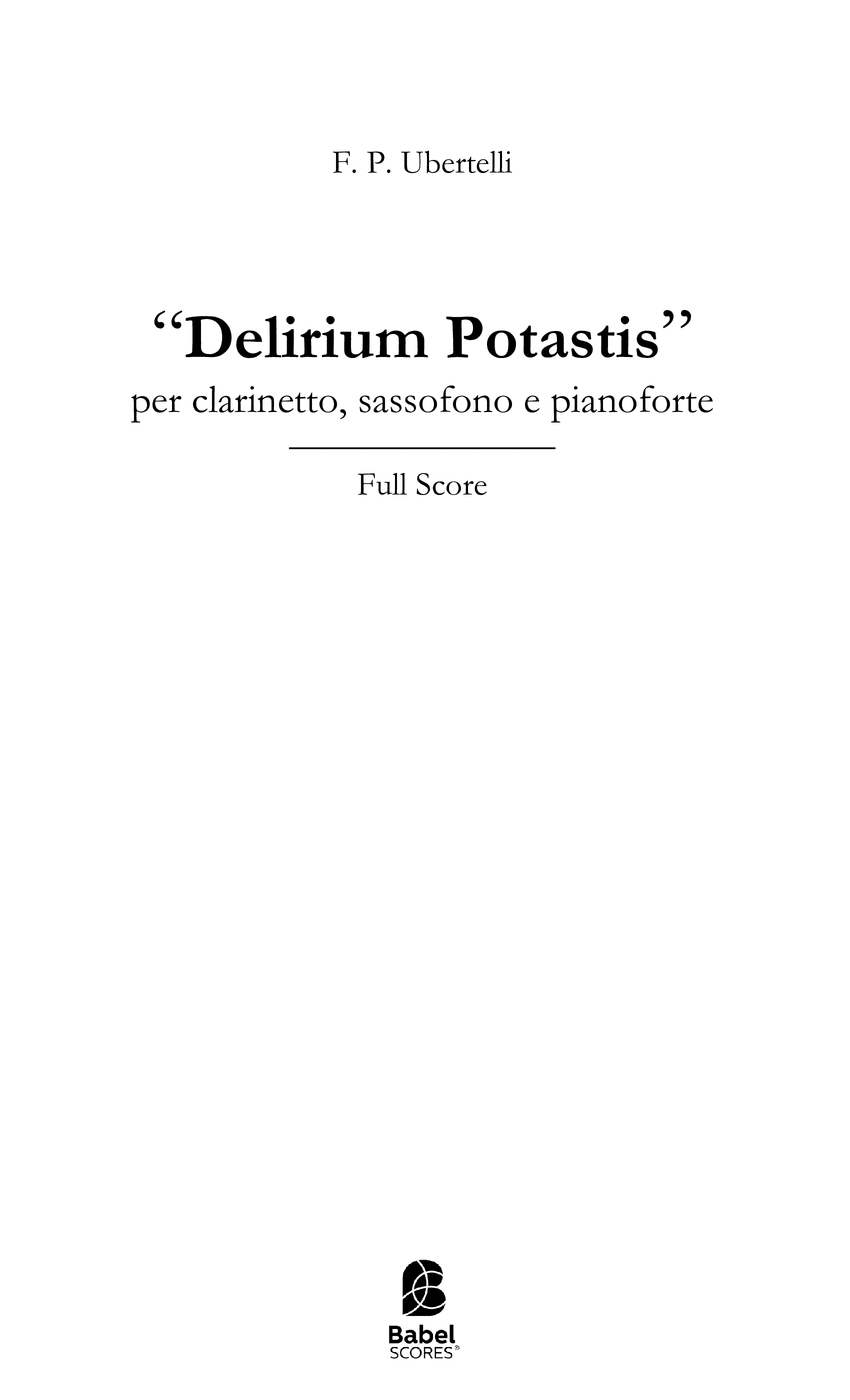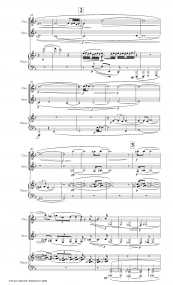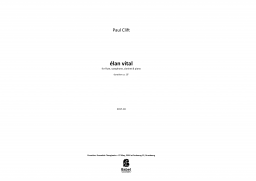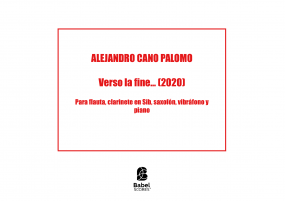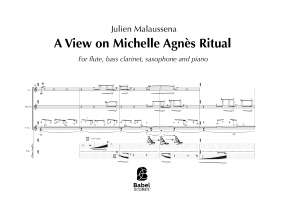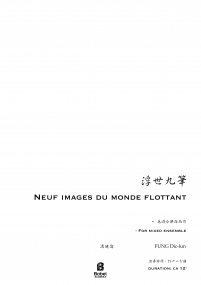Recherche avancée
Delirium Potastis
ISMN : 979-0-2325-4571-4
- Identifiez-vous pour créer une liste
Delirium Potastis is Latin for a “given delirium,” poetically stirred up by the consequences of war (the theme suggested by the Thelema Trio for their commission) in which ordinary soldiers are both purveyors and victims of gunfire, land mines, bombs and other forms of death. Despite the harsh reality, they try to reach inner peace by singing their incomprehension and guilt in the midst of the violence and darkness surrounding them: “I pour my moaning, All my shame with anguish owning; Spare, O Lord, Thy suppliant groaning.”
— Requiem Mass, 1962, Stanza XII
The graphic and sonorous representation expressed in the musical ideas is “seen” in the numerous onomatopoeias that punctuate the discourse.
Technically, the harmony is based on Sequence 1 of the Mass for the Dead of the Roman Catholic Liturgy, Dies Irae (Day of Wrath). The Dorian mode is presented both horizontally and vertically, creating an accumulation of fourths, minor sevenths and major ninths that suggest an apparent dissolution of the leading tone’s attractive poles.
“Tout est naïf, mais il y a quelque chose.”
Pages - 34

